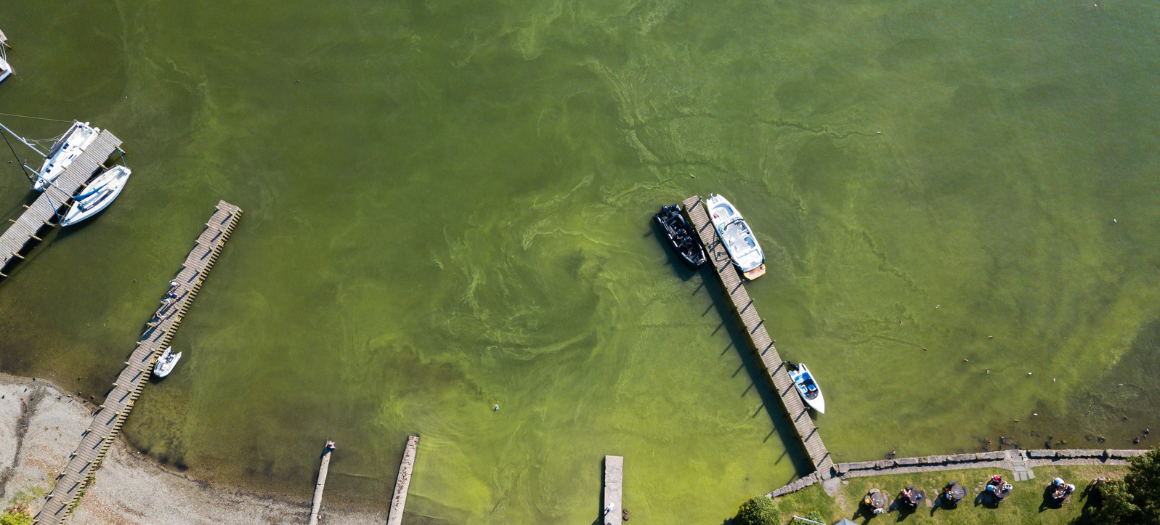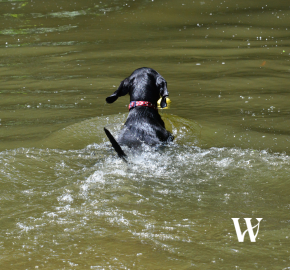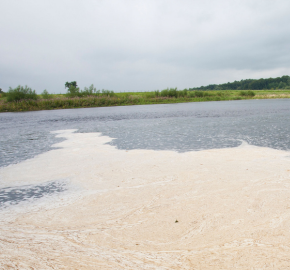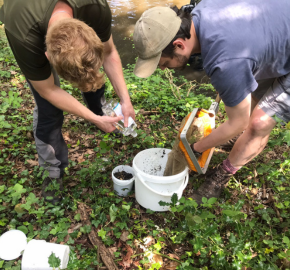River sampling to help local activists save Lake Windermere

The role of data in freshwater conservation
WildFish and local activist, Matt Staniek, have launched a Windermere SmartRivers ‘superhub’ on Lake Windermere, a UNESCO World Heritage Site and England’s largest lake.
The scaled-up hub will sample 15 river sites located on waterbodies which flow into the lake. These sites will help pinpoint the source and scale of pollution in the catchment and monitor changes in aquatic invertebrate populations.
In 2021, there were over 5,000 hours of sewage discharged from United Utilities’ Wastewater Treatment Works into the Windermere Catchment.
Early benchmarking on Wilfin Beck – a tributary of the lake – found a 61% decrease in the species present downstream of Far Sawrey Wastewater Treatment Works, compared with upstream. On the River Rothay, there was a 44% decrease in the species present downstream of Ambleside Wastewater Treatment Works, compared with upstream.
The Windermere ‘superhub’ will deliver an accurate picture of water quality issues downstream from United Utilities’ treatment works. This will help fill the data gap and demonstrate how the treatment works impact aquatic invertebrates – as an indicator of water quality – over time.
The ‘superhub’ will target United Utilities’ infrastructure as well as private septic tanks and agricultural inputs to determine the source of pollution.
Phosphate pollution
Of particular concern is phosphate pollution, a growing problem in the catchment. Early sampling has found that around 40% of phosphate entering the lake is from treated effluent and sewer overflows from the United Utilities’ Wastewater Treatment Works. These concerns are escalated when the illegal spilling at Ambleside Wastewater Treatment Works in 2018, 2019 and 2021 is considered.
WildFish has requested data – under the Environmental Information Regulations 2004 – from self-monitoring United Utilities. The water company has failed to supply information relating to their Wastewater Treatment Works at Grasmere, Near Sawrey, Ambleside and Far Sawrey.
“There is no plan in place to save Windermere. We need immediate action to reverse the ecological and biological destruction caused by sewage pollution. Invertebrate sampling will be key and give the local community a platform from which to successfully collect and record the data we need”.
Matt Staniek
Activist and Campaigner
WildFish Deputy CEO, Janina Gray is alarmed by the extend of phosphate pollution seen on Lake Winderemere and went on to say: “Scaling up SmartRivers to create a ‘superhub’ within the Windermere catchment will allow us to evidence the significant water quality data pressures within the catchment and drive the action so desperately needed.”
Water Policy Office at WildFish, James Overington is working closely with Matt on the campaign and believes that “the results from the ‘superhub’ will provide a sound scientific foundation and allow us to pinpoint exactly where Windermere is facing its greatest pressures”. James went on to say that: “the data will allow us to engage with local stakeholders and push for change on the ground.
The hub is supported by and benefits from the local expertise of the Cumbria Wildlife Trust.



